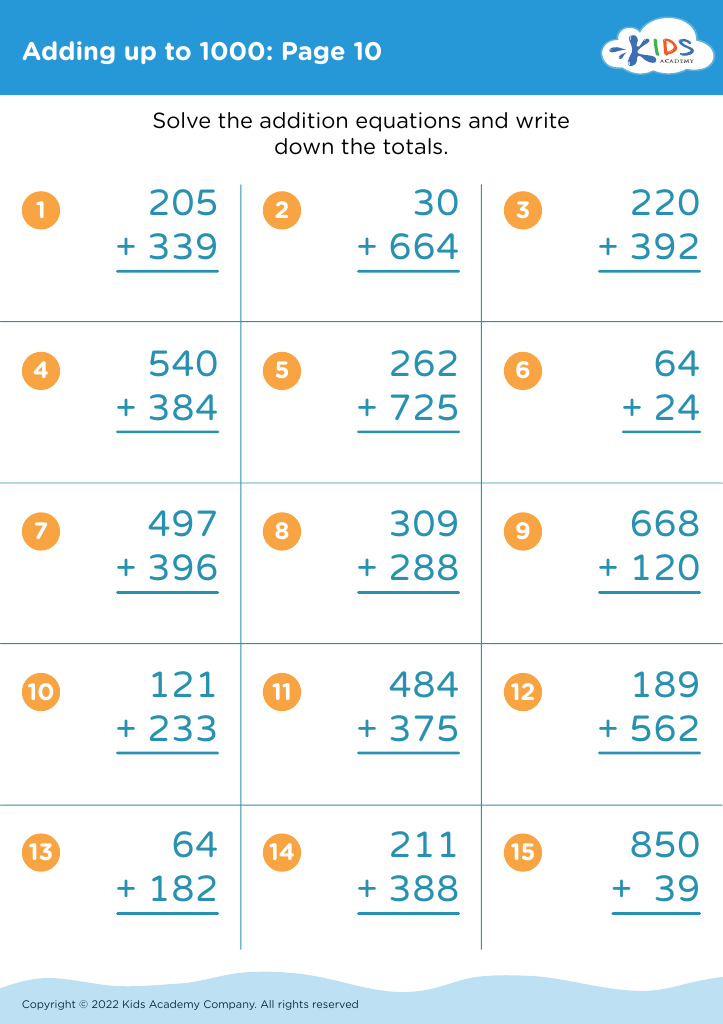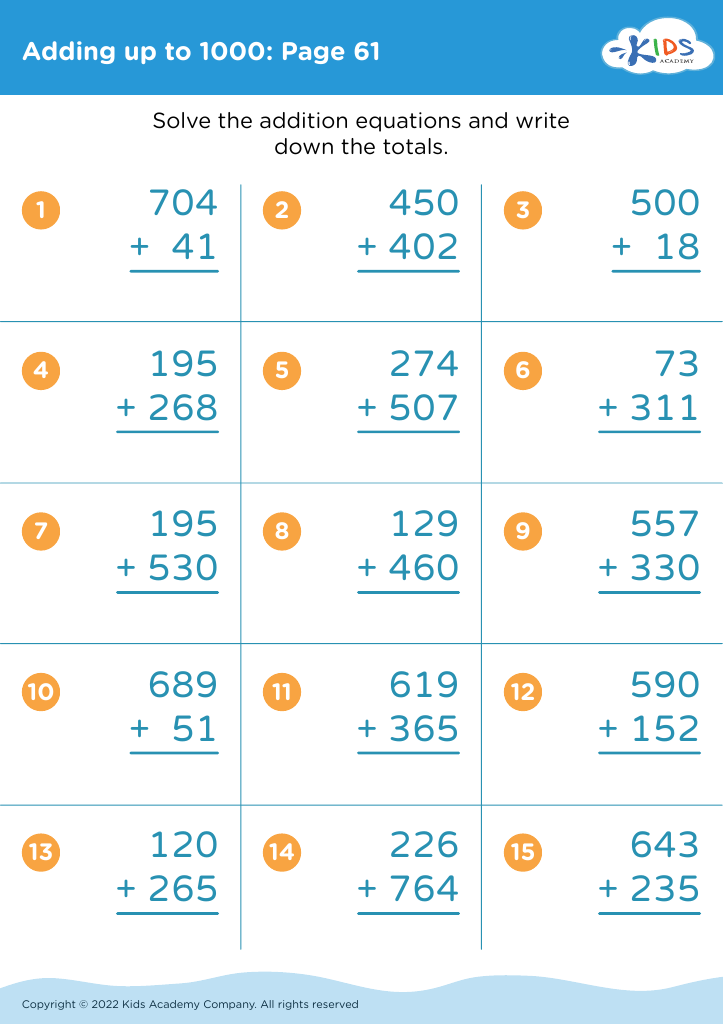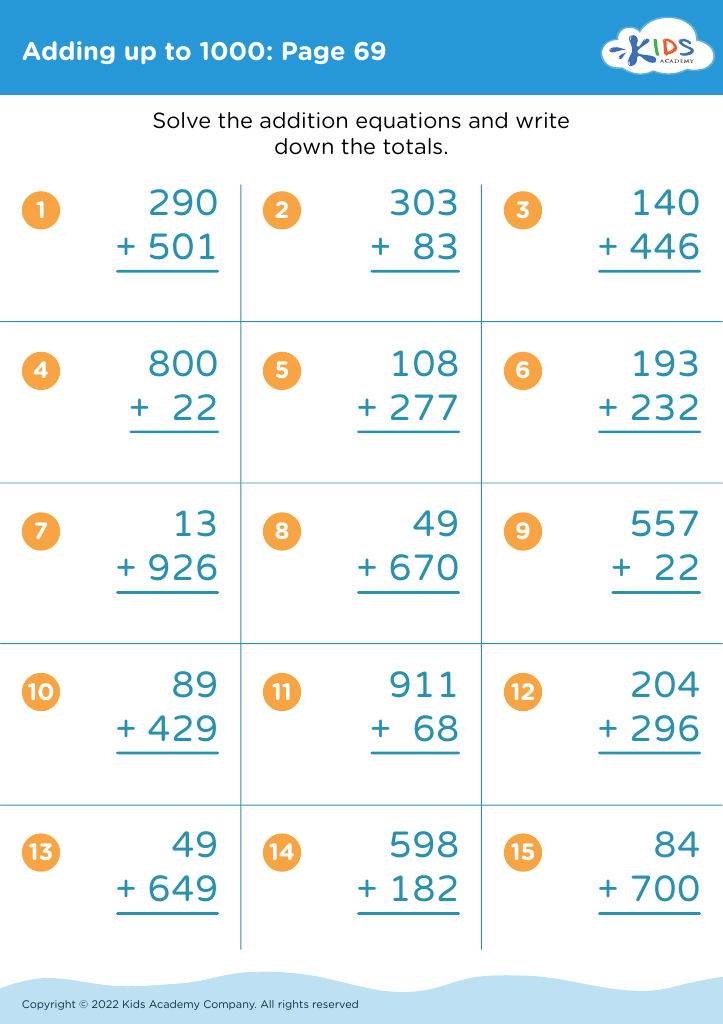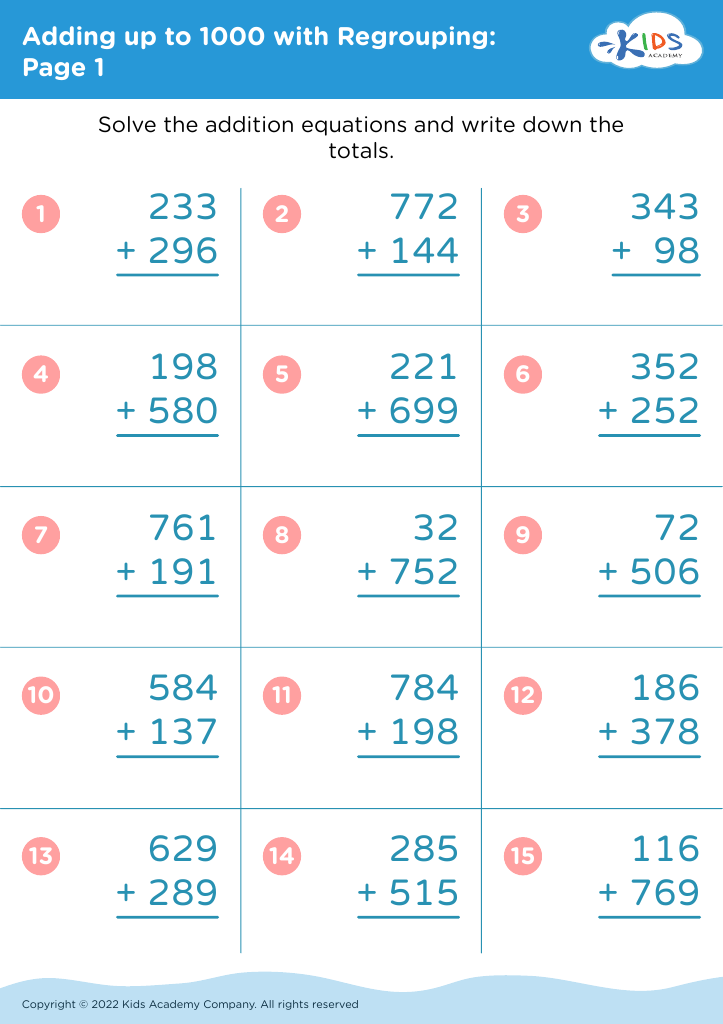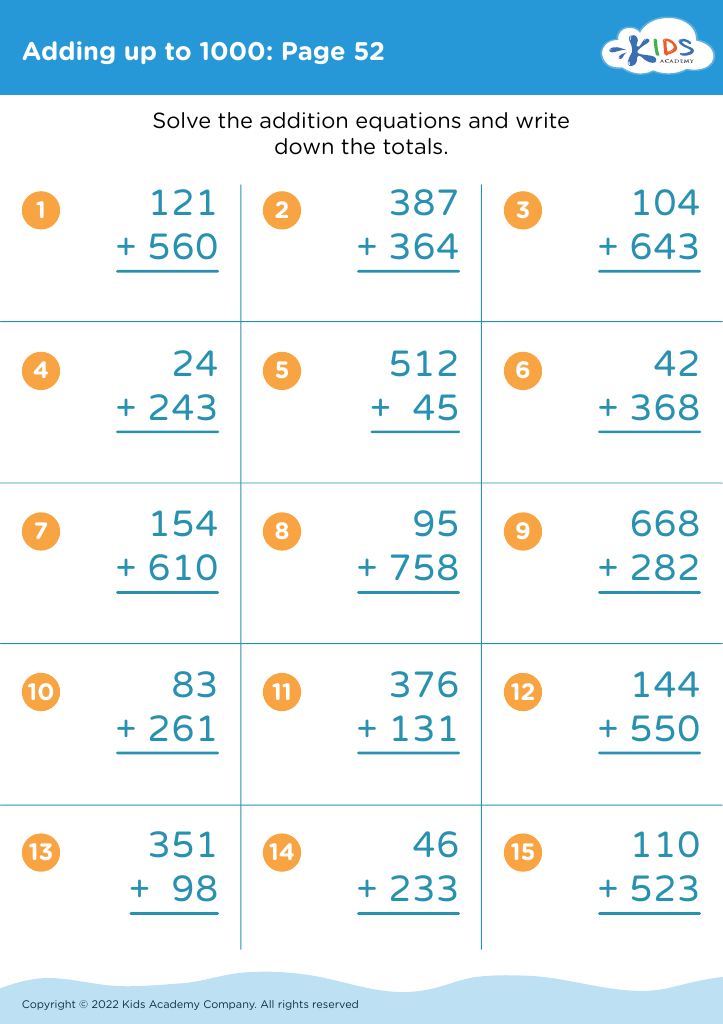Fraction simplification Adding up to 1000 Worksheets for Ages 4-7
7 filtered results
-
From - To
Unlock the world of numbers with our "Fraction Simplification Adding up to 1000 Worksheets" designed for children aged 4-7! These engaging worksheets introduce young learners to the essential skill of fraction simplification while exploring addition up to 1000. Each activity is crafted to make learning fun and interactive, helping kids strengthen their math foundations. With colorful illustrations and age-appropriate exercises, your little ones will develop confidence in their numerical abilities. Perfect for home or classroom use, our worksheets promote critical thinking and problem-solving skills. Dive into this exciting math adventure and watch your child's love for learning blossom!
Understanding fraction simplification is crucial for children aged 4-7 as it lays the groundwork for their future math skills. At this young age, children begin to develop their numerical literacy, and introducing them to fractions can enhance their mathematical understanding in a fun and engaging way. Fractions represent parts of a whole, and simplifying them helps students grasp concepts of division and proportional reasoning early on.
Engaging with fractions also promotes critical thinking and problem-solving skills, as children learn to identify, mix, and reduce fractions through practical applications. When teachers and parents encourage these skills, they foster an environment where children feel confident to explore more complex concepts later, which relates to their ability to manage addition problems up to 1000.
Moreover, simplifying fractions can help teach children about ratios and equivalency, enriching their understanding of real-world scenarios like cooking and measuring, where fractions are commonly used. Overall, incorporating the idea of fraction simplification lays a strong foundation for numerical operations, enhances cognitive development, and nurtures a positive attitude towards math, ultimately paving the way for more advanced learning in mathematics.
